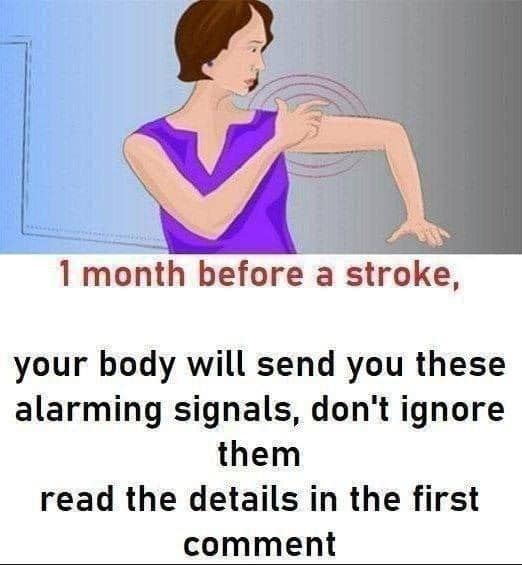Transient ischemic attack (TIA) is a temporary blockage of blood flow to the brain.
This type of brain injury is different from a typical stroke. In reality, when the blockage in an artery disappears on its own and does not cause any lasting effects, it is called a transient ischemic attack. Regarding the symptoms, they should be similar to those of a stroke and should only last a short time before disappearing completely. These things make it hard to recognize transient ischemic attacks (TIAs), which can sometimes be confused with just feeling unwell. However, since there is still a risk of stroke, it is important to stay alert and dial 15 if this happens.
Discover the signs that could show a stroke is coming a month before to help get treatment quickly.
Feeling numb or weak in your body could be a sign of a stroke.
The facial expression, arms, and legs all display this. When someone has a stroke, it usually only affects one side of the body because it impacts only one part of the brain. So, if one side of your smile looks weaker or if your arm feels numb, these are two signs that need to be treated seriously.
A stroke can make someone pass out.
Losing consciousness, feeling dizzy, and experiencing a spinning sensation are some of the more worrying symptoms. Even though they may not always be a sign of a stroke, they do suggest a significant health problem, so it is advisable to seek medical guidance as a precaution.
A stroke can impact eyesight.
Visual problems can happen suddenly before a stroke occurs. You might have trouble seeing well, sensitivity to light, difficulty distinguishing colors, or even lose your sight.
A headache could indicate a stroke.
Sometimes, you may experience sudden and very intense headaches. They might be so intense that vomiting happens as well. They could be a sign of a more serious issue than just a regular headache.
Difficulty coordinating movements after a stroke.
continued on next page

